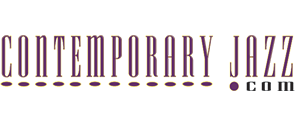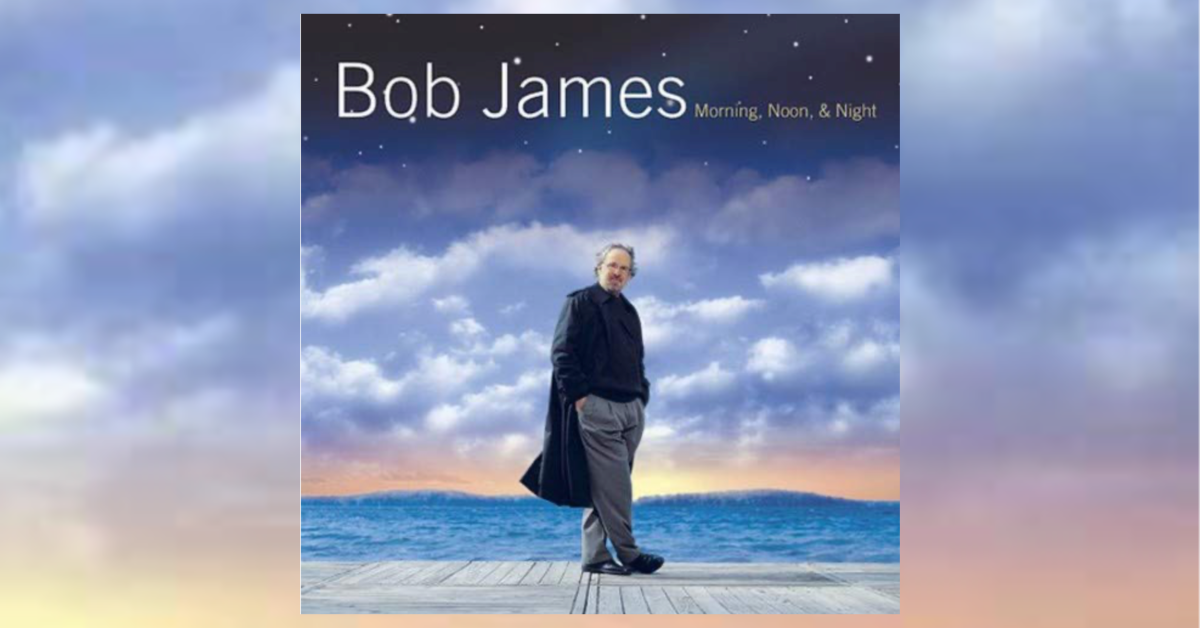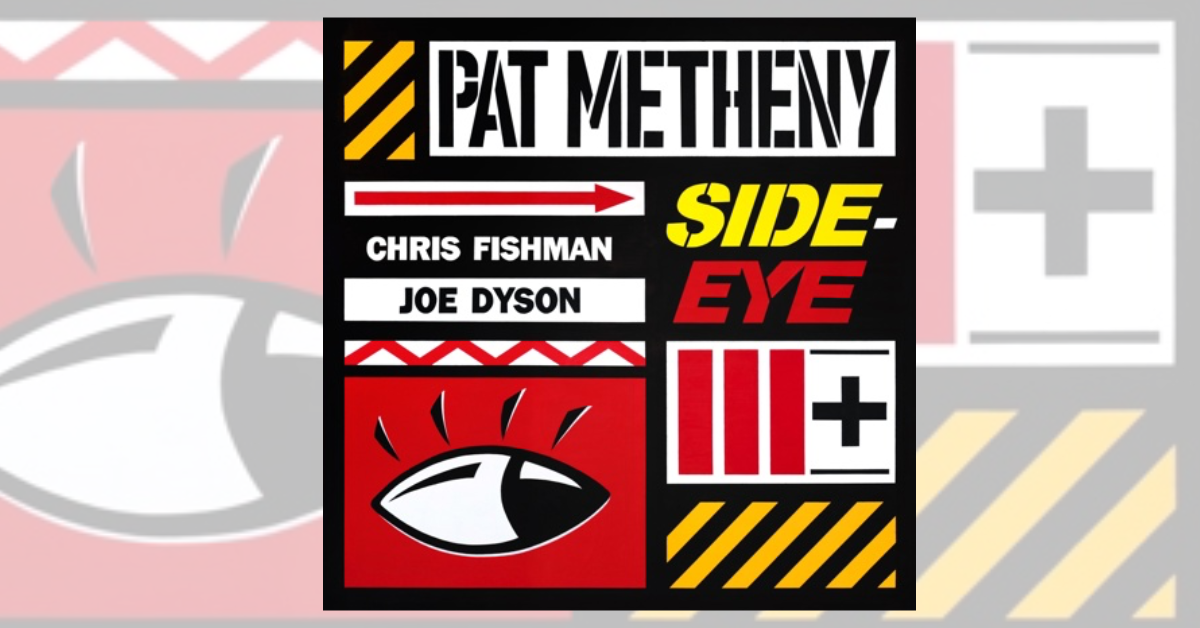[ Morning, Noon & Night by Bob James was released September 24, 2002. This was the original 2002 press release. ]
Sometimes it’s the quiet revolutions that change things the most… Bob James knows this. Along with being a superlative pianist, composer, and arranger, he’s a musical iconoclast. As one of the creators of the smooth jazz genre some thirty years ago, James mapped out a sound that has endured to this day. These innovations were controversial – still are, in fact–yet there’s no doubt that his impact on contemporary music is among the biggest in the business.
And here’s the twist: He’s never stopped. He’s still driven by the same spirit that led him to experiment years ago with avant-garde tape techniques, to launch his own label decades before other artists followed suit, and to defy traditionalists with the smooth jazz concept. He’s still working against the system, only now he’s doing it quietly, almost stealthily. With the September 24 release of his umpteenth album (give or take a few), Morning, Noon & Night, James continues to defy convention – in this case, the conventions of the style he helped to define.
This collection of ten instrumentals and one vocal track certainly reflect the artistry of Bob James, in its silky, caressing melodies, lush textures, burnished bluesy feel, and subtle but insistent rhythms. The cast of supporting players meets the high standards he’s always held, with Dave Koz, Keiko Matsui, Chuck Loeb, Will Lee, and Vinnie Colaiuta among his guests. But within this familiar sound James constantly tweaks the details. Whether drawing from streams of modern inspiration or looking toward jazz in its pre-smooth days, Morning, Noon & Night leads this style a step further in its evolution. Take for example, “Street Smart,” the opening cut. The first thing you hear is a quick turntable scratch, and then a stuttering sample – followed by shimmering electric piano chords, one of many Bob James trademarks. The track builds, and the two styles alluded to in the intro begin their dance, as piano lines, swinging and fluid, thread through hip-hop beats and breaks. Because the results sound so good, it isn’t immediately clear that they stem from ideas that, in smooth jazz circles, qualify as more than a little risky.
To begin with, “Street Smart” stems from an intriguing collaboration: the mellow maestro Bob James and the incendiary turntable virtuoso Rob Swift of the X-Ecutioners. “I met Rob through a friend, Milan Simich,” James says. “Milan and I have talked quite a bit about breaking down the boundaries between different approaches to music, and when he introduced me to Rob the possibilities were obvious to me from the start. Rob and I did a free improvised piece together, where he had his turntable and LPs and I had a Fender Rhodes. It turned out to be very interesting, and I became determined to see if I could take it further.” James invited Swift back for some more advanced interaction, then started sketching out ideas that they might jointly explore. “We jammed all day long and recorded it all,” he remembers. “Based on all that raw material, I put “Street Smart” together as a freewheeling collage, without even thinking too much about how it was going to come out. In fact, as we were playing I didn’t even have that main theme, which came up as an improvisation in my dialog with Rob. He was definitely stimulating because he helped me relate to what hip-hop artists hear in the way of rhythm.”
That’s just the beginning. From the urban vibe of “Street Smart” James moves to an unlikely marriage of gospel music and Indian exotica on “Over & Over,” in which producer Paul Brown makes a rare performing appearance on electric sitar. “Paul and I went back and forth on whether it was appropriate for the tune,” James admits. “In the end, we decided to go from the ethereal, Eastern-influenced sound of the verses to the gospel feel of the choruses, with the organ and acoustic piano, specifically because of the question of whether it fit. Frankly, my thoughts are always to go beyond what people expect – actually, that’s part of my responsibility.”
Which is exactly what James does as well on the closing track. Though it goes down easy, “Count On It” does break a few of the smooth jazz commandments. For one, it includes a full-bodied horn section, more typical in muscular big-band evocations. But it also thwarts the expectations of swing revivalism by massing the horns in the background, so that their dark rumble or brassy interjections serve the rhythm section, rather than vice versa. Again, it’s what you would expect from James: a swinging, listenable performance that works its magic in spite of, not because of, expectations.
“This one is a tribute to Count Basie, although that’s not specifically what I set out to do,” James explains. “In the course of working on Morning, Noon & Night I kept going back and listening to how powerfully the rhythm sections contributed to the music on some of my older records. Grooves are created in a very different way now, but in other respects the music hasn’t changed that much: It’s still chord changes and improvisation, with musicians playing a different version of swing. The differences can be very subtle, and if you get players who are accustomed to playing the music of today, and you put them in a setting where they have to play in a slightly more retro fashion, you’re going to end up with a hybrid of both styles. That’s what ‘Count On It’ is for me.”
The story is similar throughout the rest of Morning, Noon & Night. Some of these tracks have a special meaning to James, perhaps none more so than “When The Love Is Over,” which features his daughter Hilary James. Her singing, sensuous and soulful, marks her return to the mic after taking time off to become a mother. “My granddaughter, Ava Marie, was about four months old when Hilary made the trip out to Los Angeles to record,” James grins. “I ended up babysitting for a while so she could do the lead vocal.”
And so Bob James – groundbreaking artist, two-time Grammy® recipient, winner of Cashbox’s award as Jazz Producer of the Decade, co-founder of the smooth jazz supergroup Fourplay, virtuoso performer with credits that range from bebop to Bach, wine collector and connoisseur – adds “grandpa” to an already imposing résumé. But don’t expect this to be the end of the story; as Morning, Noon & Night indicates, there’s lots more delightfully subversive work to expect from Bob James.
“It’s always been important to me to stay up with the times of my life,” he says, “and to change my music over the course of time. I can’t help some of the influences I’ve had; you can hear definite similarities in everything I play. But by wanting to collaborate with new people and draw from the ideas that always come along in music, I’ll never stop changing too.”
The gentle revolution is always on … Morning, Noon & Night.





Leave a Reply